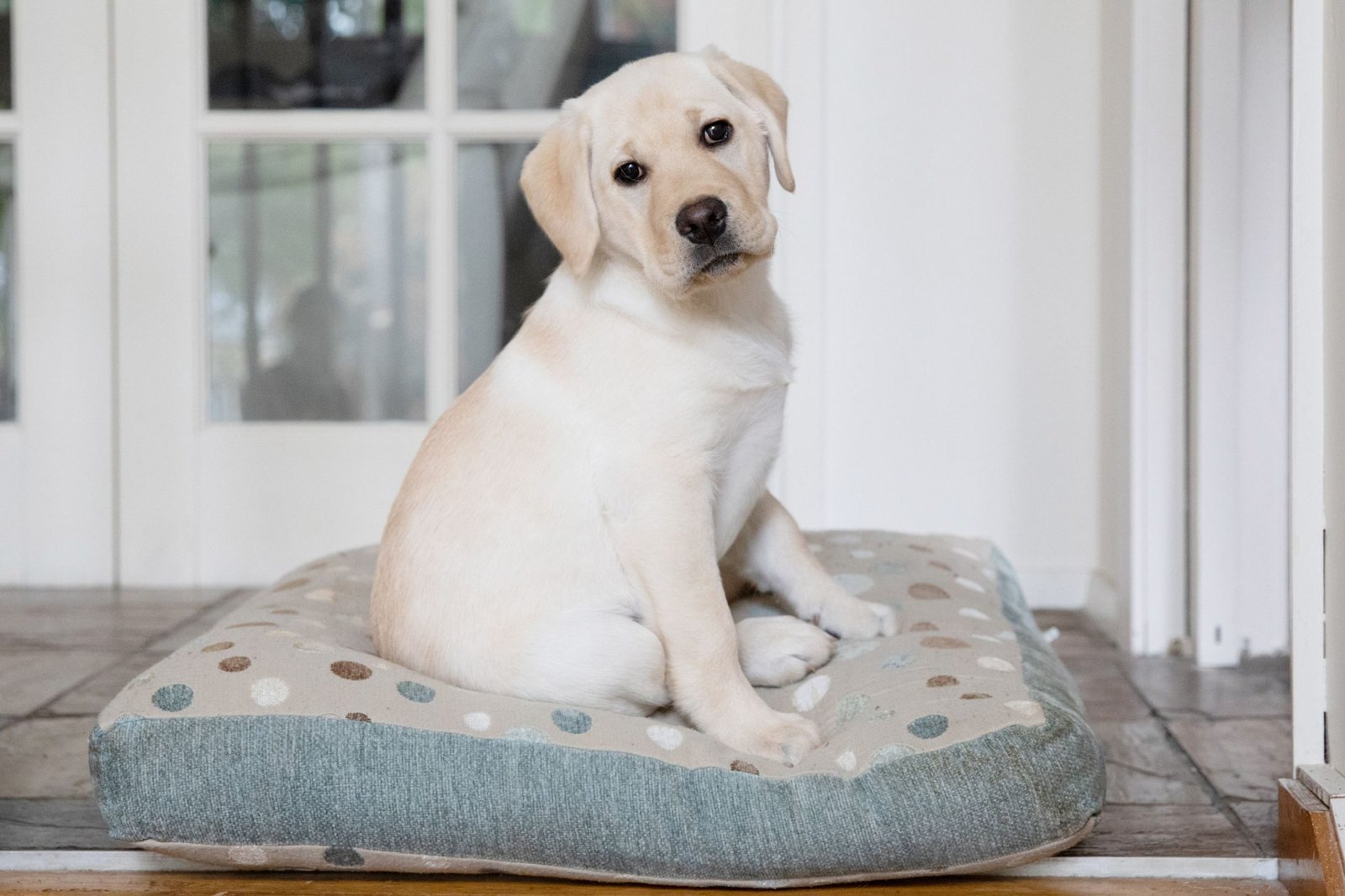To care for a puppy, provide food, cleanliness, warmth, and medical attention. Ensure they have a safe environment, supervise them in public, and introduce new experiences.
Establish a routine and train them to follow rules, while also socializing them with other pets and people. Find a reputable vet and schedule regular check-ups. Exercise and play with your puppy to stimulate their mind. Gradually introduce them to different environments.
Keep your home puppy-proof by removing potential hazards. It’s important to prioritize their health and well-being.
:strip_icc()/how-to-care-for-puppies-1117475-06-8b6c056e1ef34428a9854f813c2c9709.jpg)
Credit: www.thesprucepets.com
Basic Puppy Care
Learn the basics of puppy care to ensure your new furry friend stays happy and healthy. From finding a good vet to establishing a bathroom routine, these tips will guide you in providing the best care for your puppy.
Health Check
When bringing a new puppy into your home, it is crucial to prioritize their health and well-being. Schedule a health check with a trusted veterinarian as soon as possible. During this visit, the vet will assess your puppy’s overall health, check for any underlying issues, and provide guidance on proper care. It is important to address any health concerns early on to ensure your puppy grows into a happy and healthy adult dog.Deworming And Vaccinations
Deworming and vaccinations are essential parts of a puppy’s basic care. Puppies are susceptible to parasites and diseases, so regular deworming and vaccination schedules are crucial. Consult with your veterinarian to determine the appropriate deworming and vaccination protocols based on your puppy’s age, size, and breed. This will help protect your puppy from common parasites and diseases, allowing them to live a long and healthy life.Microchipping
Microchipping your puppy is an effective way to ensure their safety and provide peace of mind. A microchip is a tiny electronic device implanted under your puppy’s skin. This chip contains a unique identification number that can be read using a scanner. Should your puppy ever get lost or go missing, a microchip can greatly increase the chances of them being reunited with you. Remember to register the microchip with your contact information to ensure it is up-to-date.Products For Puppy Care
To properly care for your puppy, it is essential to have the right products on hand. Here are some must-haves for puppy care: – Puppy food: Choose a high-quality, age-appropriate puppy food that meets their nutritional needs. – Dog crate: A crate provides a safe and comfortable space for your puppy to rest and sleep. – Dog bed: Provide your puppy with a cozy bed where they can relax and unwind. – Dog harness: A harness is a safer alternative to a collar, especially for puppies who may pull on the leash. – Chew toys: Puppies love to chew, so investing in chew toys can help save your furniture and shoes. – Brush: Regular brushing will keep your puppy’s coat healthy and free from tangles. – Dog toy: Interactive toys are essential for mental stimulation and playtime with your puppy. – Dog ID tag: Ensure your puppy wears a collar with an ID tag, including your contact information. By having these products ready, you will be well-prepared to meet your puppy’s needs and provide them with a comfortable and happy home. Remember, caring for a puppy requires dedication, time, and patience. With proper care, love, and attention, your puppy will grow into a loyal and well-adjusted adult dog.
Credit: www.amazon.com
Training And Exercise
When it comes to caring for a puppy, training and exercise are two essential aspects that contribute to their overall well-being and development. Proper training helps establish boundaries and teaches puppies how to behave appropriately, while exercise provides them with physical stimulation and helps channel their energy in a positive way.
Basic Training
Basic training is crucial for puppies to learn good behavior and manners. Start by teaching them basic commands such as sit, stay, and come. Use positive reinforcement techniques like treats and praise to reward desired behaviors. Consistency is key in training, so be sure to practice these commands regularly.
Bathing And Grooming
Regular bathing and grooming are necessary to keep your puppy clean and healthy. Introduce your puppy to grooming tools such as brushes and nail clippers early on so they become comfortable with the process. Use gentle, puppy-friendly shampoos and conditioners when bathing them, and be sure to dry them thoroughly to avoid any skin irritation.
Exercise
Exercise is vital for your puppy’s physical and mental well-being. Providing them with regular exercise helps burn off excess energy and prevents behavior problems caused by boredom. Take your puppy for daily walks, engage in playtime, and provide them with interactive toys that stimulate their mind. Remember to adjust the duration and intensity of exercise based on your puppy’s age, breed, and overall health.
Socialization
Socialization is an important aspect of puppy care as it helps them become well-adjusted and friendly dogs. Expose your puppy to various people, animals, and environments from an early age to help them develop positive relationships and reduce the risk of fear or aggression later in life. Enroll them in puppy classes or organize playdates with other friendly dogs to enhance their social skills.
In conclusion, training and exercise are essential components of caring for a puppy. By providing them with proper training, regular exercise, and positive socialization experiences, you can ensure they become well-rounded and happy dogs. Remember to be patient, consistent, and always reward positive behaviors.
Puppy Checklist And Do’s & Don’ts
Before bringing a new puppy home, it’s essential to ensure you have all the necessary items to provide a comfortable and safe environment. Here’s a puppy checklist:
- Leash
- Collar
- Dog toy
- Dog ID Tag
- Dog crate
- Dog bed
- Dog food
- Dog harness
- Chew toy
- Brush
Proper care and training are crucial for a happy and healthy puppy. Here are the do’s and don’ts of puppy care:
Do’s
- Supervise your puppy at all times, especially in public, and use different opportunities to teach them new skills and practice good behavior.
- Keep a safe and clean environment for your puppy to prevent any accidents or hazards.
- Allow your puppy to walk on different hard surfaces in varying environments to help build their confidence.
- Take your puppy on frequent car rides and expose them to different types of transportation to ensure they become comfortable with traveling.
Don’ts
- Interact with dogs outside your home until your puppy has completed their vaccinations to prevent the risk of diseases.
- Overwhelm your puppy with too much excitement or stress during their initial days in their new home.
- Introduce your puppy to other family pets without proper supervision and a gradual introduction process.
When bringing a new puppy home, it’s important to make the transition as smooth as possible. Here are some tips for introducing your puppy to their new home:
- Limit your puppy’s access to certain areas of your home to ensure their safety.
- Choose a designated spot for your puppy to relieve themselves, and consistently take them there to establish a potty routine.
- Introduce your puppy to their new family members gradually, allowing them to become familiar with each person’s scent and voice.
- Minimize stress and excitement during the first few days by keeping noise levels down and avoiding overwhelming them with too many new experiences.
- If you have other pets, introduce them to the puppy slowly and under supervision to ensure a positive interaction.
- Make a veterinary appointment to get your puppy checked and vaccinated to start their health care regimen.
Taking good care of your puppy involves several important tasks to keep them healthy and happy:
- Provide your puppy with the appropriate food specially formulated for their age and breed.
- Ensure your puppy always has access to fresh water.
- Create a comfortable sleeping area for your puppy with a cozy bed and blanket.
- Regularly groom your puppy, including brushing their fur, trimming their nails, and cleaning their ears.
- Schedule regular visits to the veterinarian for check-ups, vaccinations, and preventative care.

Credit: www.petvet.vet
Frequently Asked Questions For Puppies 101: How To Care For A Puppy
How Do You Take Care Of A Puppy 101?
To take care of a puppy, follow these guidelines: 1. Find a good vet. 2. Establish a bathroom routine. 3. Watch for signs of illness. 4. Teach obedience. 5. Provide exercise and playtime.
What Are The Do’s And Don’ts Of A Puppy?
Do’s: 1. Supervise your puppy at all times in public to teach them new skills and good behavior. 2. Keep a safe and clean environment for your puppy. 3. Allow your pup to explore different surfaces in varying environments. 4.
Take your pup on frequent car rides and different transportation. Don’ts: 1. Don’t interact with dogs outside your home until your puppy is fully vaccinated. 2. Don’t overwhelm your puppy with too much stress and excitement. 3. Don’t let your puppy have access to areas where potential hazards are present.
4. Don’t neglect regular veterinary check-ups and medical care for your puppy.
What Is The First Thing You Do When Getting A Puppy?
When getting a puppy, the first thing you should do is limit their access to your home and choose a designated potty spot. Then, introduce them to their new family and minimize stress. Also, introduce them to other family pets and start enforcing rules.
Finally, make a veterinary appointment.
How Do I Take Good Care Of My Puppy?
To take good care of your puppy, follow these guidelines: 1. Find a good vet 2. Shop for quality food 3. Establish a bathroom routine 4. Watch for early signs of illness 5. Teach obedience and be sociable. Additionally, provide exercise, plenty of toys, and a safe environment.
Stay consistent with training and keep a close eye on your puppy.
Conclusion
Taking care of a puppy requires dedication, patience, and love. By following the guidelines mentioned in this blog post, you can ensure that your puppy grows up to be happy and healthy. Remember to provide regular exercise, establish a routine, and seek veterinary care when needed.
Additionally, make sure to socialize your puppy and provide them with a safe and clean environment. With proper care and attention, you can create a strong bond with your furry friend that will last a lifetime.

